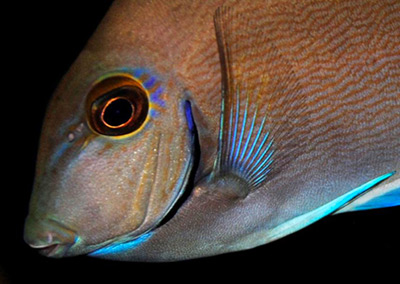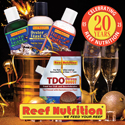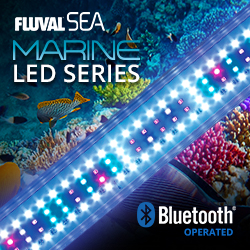 This fish is mildly emaciated, which could be a symptom of internal parasites if it were feeding normallyWhen a fish in our care gets sick, it’s a perfectly understandable impulse to want to throw every cure we can lay our hands on at the problem. But sometimes rushing ahead with a medication or other treatment can do more harm than good. In the following excerpt from his book The Salt Smart Guide to Preventing, Diagnosing, and Treating Diseases of Marine Fishes, author Jay Hemdal explains why the Latin phrase “Primum non nocere” (“First, do no harm”) is so significant when it comes to administering treatments to sick fish.When the cure is worse than the disease With some fish diseases, a proposed cure may actually be more damaging than the illness itself. In human medicine, this is called the iatrogenic effect, where the proposed cure causes its own serious problems. To avoid this, aquarists must always be aware of the Latin phrase “Primum non nocere,” or “First, do no harm.” Problems in developing an appropriate disease treatment can range from treating an aquarium with a medication or dosage that ends up being lethal to the fish to procrastinating due to indecision, again with fish loss as a result. In between these two extremes are using products that simply do not work as advertised, treating for the wrong disease, or trying too many different treatments. Double check the dosage and stock up Always double check your dosage calculations before adding any medication to an aquarium. Some medications can be toxic to sensitive species, notably ionic copper and chloroquine MORE
This fish is mildly emaciated, which could be a symptom of internal parasites if it were feeding normallyWhen a fish in our care gets sick, it’s a perfectly understandable impulse to want to throw every cure we can lay our hands on at the problem. But sometimes rushing ahead with a medication or other treatment can do more harm than good. In the following excerpt from his book The Salt Smart Guide to Preventing, Diagnosing, and Treating Diseases of Marine Fishes, author Jay Hemdal explains why the Latin phrase “Primum non nocere” (“First, do no harm”) is so significant when it comes to administering treatments to sick fish.When the cure is worse than the disease With some fish diseases, a proposed cure may actually be more damaging than the illness itself. In human medicine, this is called the iatrogenic effect, where the proposed cure causes its own serious problems. To avoid this, aquarists must always be aware of the Latin phrase “Primum non nocere,” or “First, do no harm.” Problems in developing an appropriate disease treatment can range from treating an aquarium with a medication or dosage that ends up being lethal to the fish to procrastinating due to indecision, again with fish loss as a result. In between these two extremes are using products that simply do not work as advertised, treating for the wrong disease, or trying too many different treatments. Double check the dosage and stock up Always double check your dosage calculations before adding any medication to an aquarium. Some medications can be toxic to sensitive species, notably ionic copper and chloroquine MORE









0 Comments